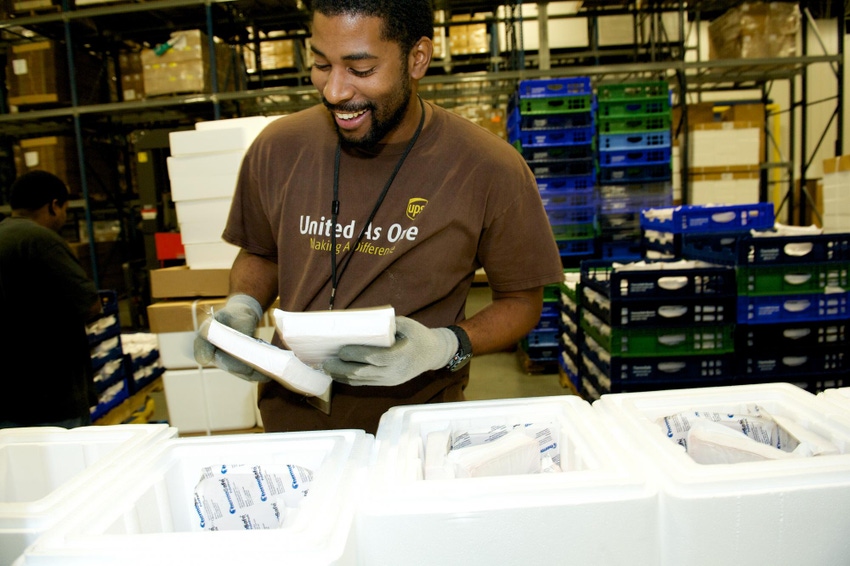July 12, 2016

UPS has been supporting clinical trials for years, shipping investigational drugs and medical devices as well as patient specimens around the world. Many of its solutions, however, have been custom built for customers as needed. So for the last two years, UPS has focused on how to expand its capabilities for clinical trials and “bolt” those capabilities onto its existing infrastructure, Ron Swistock, UPS director of healthcare strategy, tells PMP News.
As a result of the initiative, UPS has doubled its capacity and can now transport temperature-sensitive products and biological specimens in and out of more than 60 countries more efficiently.
The expansion could potentially meet ongoing industry needs for efficiency. “There are cost pressures on the pharmaceutical industry in general, and substantial costs for clinical trials in terms of logistics,” says Swistock.
According to Habib N’Konou, UPS senior operations director for clinical trials, UPS’s “cost-effective portfolio streamlines logistics for clinical trials into one global network across sometimes remote, hard-to-reach locations. With drug research taking years at a cost in the billions, a product loss or damage, including falling out of temperature range, could mean a costly setback. Our recent upgrades to our network can help reduce product loss or damage.”
Clinical trial shipments now move within one continuous UPS network, even when UPS brings on local partners to provide specialty services or couriers to reach remote or difficult-to-serve areas. “It is still a 100% UPS shipment in terms of legal liability and customer service,” says Swistock. “When agents pick up [the shipment] on our behalf, it still ships under a UPS bar code and [has complete] shipment visibility.”
In addition to maintaining supply-chain visibility, UPS has expanded the reach of its healthcare shipment control tower network for handling supply-chain intervention requests. “We can handle such requests for shipping lanes that don’t formally have our UPS Proactive Response service,” he says, referring to the company’s dedicated suite of services that provides continuous monitoring and emergency response. “For re-icing support [of clinical packages], we can provide a higher level of contingency responses.”
UPS has also developed an easy-to-use system for generating shipping labels at clinical investigator sites. “Clinicians select the study or protocol number and everything else could be prepopulated,” Swistock explains. The study number is then linked to UPS’s 1Z bar code system. “It’s a simple-to-use interface,” he adds. For regulatory compliance, the system ensures that there is no reference to patients on the label.
The UPS solutions team works with the trial sponsor, clinical research organization, or other stakeholder to make sure the label-generating system has all information on shipment lanes, locations, temperature ranges, or other details.
UPS can also help procure clinical trial packaging as needed, which could include insulated shipping packages from the UPS Temperature True line and a cryogenic shipping option.
“Improved health outcomes through sophisticated drugs and vaccines start with successful clinical trials,” explained Geoff Light, UPS vice president of global healthcare strategy, in a statement. “Optimized logistics is an integral component of medical research and development, and our goal is to help clinical investigators reach any part of the world with maximum efficiency. We will continue to invest in the right global solutions with the aim of becoming the preeminent leader in biological specimen transportation.”
For more information on UPS’s healthcare logistics solutions, visit: www.ups.com/healthcare.
*****************************************
Looking for inspiration for your next medical device packaging project? Visit MD&M Minneapolis September 21-22 for the latest in packaging materials, equipment, automation, and more!
About the Author(s)
You May Also Like




